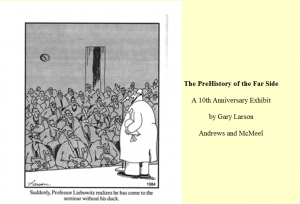The second session I attended at this conference was a workshop exploring the level of control (Internet filtering, access to phones and other devices etc) and the consequences for the classroom and beyond . There seem to be as many approaches as there are schools. It returns us to the basic questions about how much structure you put around students to enable/encourage/expect/demand appropriate behaviors. The preferred approach needs to link in to the (changing) culture of the entire school community. My thinking on this tends more toward an “open access” approach where the students have to take more responsibility for managing their own appropriate use of ICTresources. BUT, this has to be achieved through a carefully negotiated social contract involving parents, students and the school within the broader social/legal framework we operate in. Do you help students learn appropriate behavours by filtering out innapropriate ones during school hours? Or are you just displacing the problems so that they occur elsewhere? I can hear these questions echoing through centuries of education.
Professor Leibovitz’ duck
Being at this conference without an iPad would make you feel like prof leibowitz in the old Larson duck cartoon.
See: Leibowitz’s duck
Presentation 2: Why Bother with Social Media
In this session I look at why we should seriously consider Social Media. Yes Facebook, Twitter etc often has a bad name but as Ross has stressed it is not the tool that is the problem. Brother Michael Green in the latest MSA Newsletter said:
First keynote Ian Jukes
Presentation at Conference 1
Presentation at Leading a Digital School Conference
Grow Your Own Personal Learning Network
iWBNET Masterclass Wiki
http://www.learningwiki.net/groups/masterclass
Lots of great resources on this wiki!
The BYOD (bring your own device) debate
http://learningwiki.net/groups/masterclass
Protecting the school networks,etc.
http://learningwiki.net/groups/masterclass/wiki/cdad7/Unconference_Session_notes.html
See also… Ed Tech Crew podcasts some great topics for educators in Australia and around the world.
Teaching and learning in the digital age reflections…
Friday 15, June 2012
This quote seems so relevant to adjusting to the ever changing “digital learning technologies” as a teacher in the “digital age” (note to self don’t use the now redundant term “21stC learning”… It’s so last decade…)it even applies to the WiFi not working as fast as I want!
“Even though you may want to move forward in your life, you may have one foot on the brakes. In order to be free, we must learn how to let go. Release the hurt. Release the fear. Refuse to entertain your old pain. The energy it takes to hang onto the past is holding you back from a new life.”
— Mary Manin Morrissey
Key note speaker Lawrie Laurence
#K12mc how are you going as a coach ru exciting ur kids about learning, ru bringing belief that they can learn, ru bringing empathy.
3 hours ago
The Second IWB conference starts tomorrow night!
getting packed ready to go…
More importantly last minute HELP fromNic in IT!

